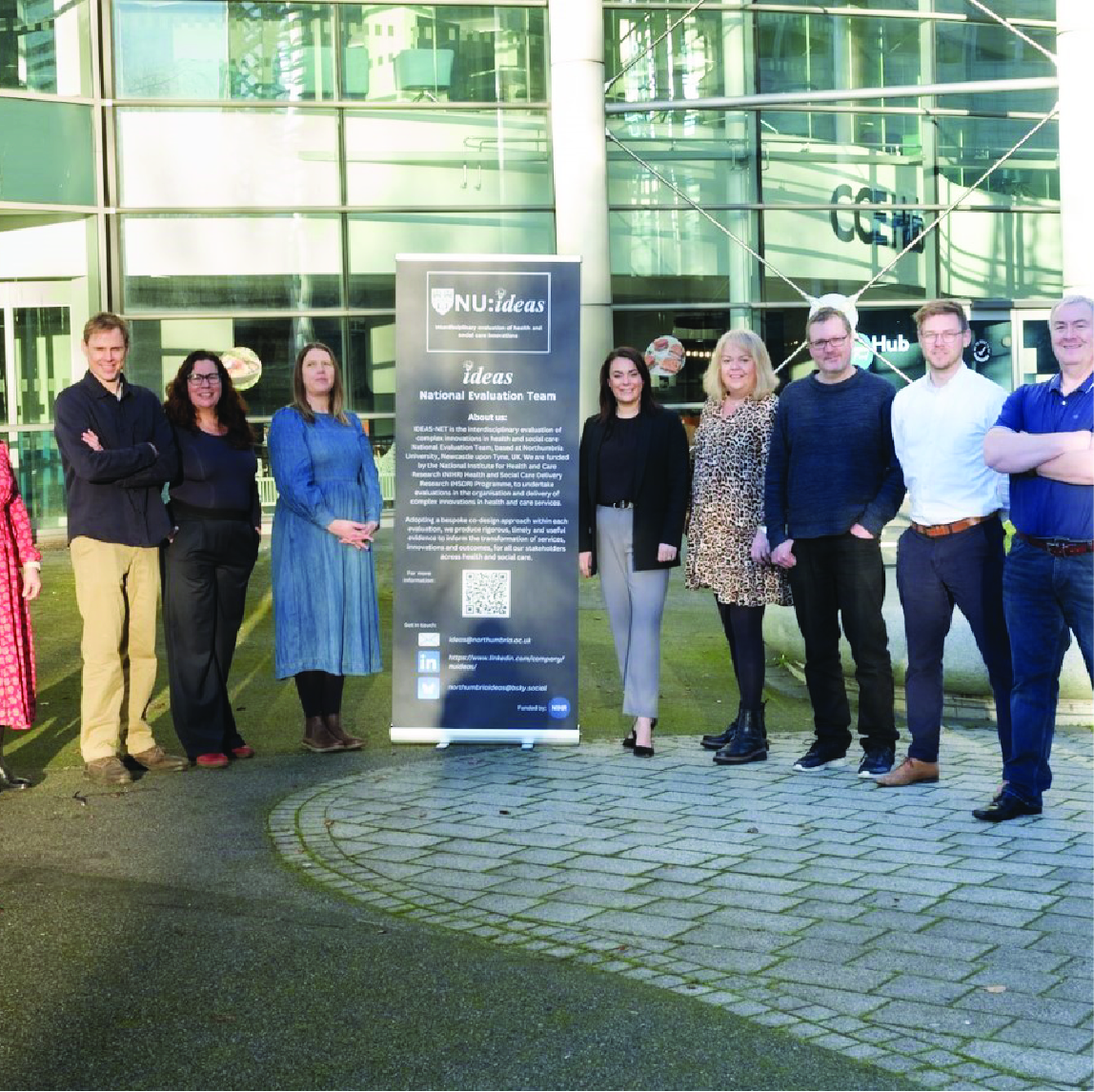-
Study
-
Quick Links
- Course Search
- Unlock Your Potential
- Still time to Apply
- Higher and Degree Apprenticeships
- Continuing Professional Development
- Still time to apply
-
Undergraduate
- Course Search
- Application Guides
- UCAS Exhibitions
- Foundation Years
- Fees and Funding
- School & College Outreach
- Information for Parents
-
Postgraduate
- Course Search
- Application Guide
- Postgraduate Research Degrees
- Flexible Learning
- Fees and Funding
- Change Direction
- Register your Interest
-
Student Life
- Students' Union
- The Hub - Student Blog
- Accommodation
- Northumbria Sport
- Support for Students
-
Experience Northumbria
- Open Days & Events
- Virtual Tours
- Campus Tours
- Life in Newcastle
-
-
International
International
Northumbria’s global footprint touches every continent across the world, through our global partnerships across 17 institutions in 10 countries, to our 277,000 strong alumni community and 150 recruitment partners – we prepare our students for the challenges of tomorrow. Discover more about how to join Northumbria’s global family or our partnerships.
View our Global Footprint-
Quick Links
- Course Search
- Undergraduate Study
- Postgraduate Study
- Information for Parents
- London Campus
- Northumbria Pathway
- Sign up for Information
-
International Students
- Information for Students
- International Events
- Application Guide
- Entry Requirements and Education Country Agents
- Global Offices
- English Requirements
- English Language Centre
- International student support
-
International Fees and Funding
- International Undergraduate Fees
- International Undergraduate Funding
- International Masters Fees
- International Masters Funding
- International Postgraduate Research Fees
- International Postgraduate Research Funding
-
International Partners
- Agent and Representative Network
- Global Partnerships
- Global Community
-
International Mobility
- Information for Northumbria Students
- Information for Incoming Exchange Students
-
-
Business
Business
The world is changing faster than ever before. The future is there to be won by organisations who find ways to turn today's possibilities into tomorrows competitive edge. In a connected world, collaboration can be the key to success.
More on our Business Services -
Research
Research
Northumbria is a research-rich, business-focused, professional university with a global reputation for academic quality. We conduct ground-breaking research that is responsive to the science & technology, health & well being, economic and social and arts & cultural needs for the communities
Discover more about our Research -
About Us
-
About Northumbria
- Our Strategy
- Our Staff
- Place and Partnerships
- Leadership & Governance
- Academic Departments
- University Services
- History of Northumbria
- Contact us
- Online Shop
-
-
Alumni
Alumni
Northumbria University is renowned for the calibre of its business-ready graduates. Our alumni network has over 246,000 graduates based in 178 countries worldwide in a range of sectors, our alumni are making a real impact on the world.
Our Alumni - Work For Us
What will I learn on this module?
This option module aims to kick start and support the aspirations of students who which to start their own business while at the final stages of their Masters programme and with a strong responsible enterprise focus. Socially responsible enterprises are commercial entities aimed to be profitable and grow in their market. They can be found in a variety of sectors, acting within a local, national or international market-driven space. Their ethos and strategic insight aims at turning a business idea into a commercial activity which transforms lives and delivers towards the fulfilment of the 17 SDGs by the UN.
Students joining the Masters programme may have already formed ideas for a business venture centred around a social or environmental purpose. In the UK alone there over 130,000 social enterprises registered with a combined turnover of £78 billion making a high-value impact to their local economy and beyond, shaping the strategic thinking of other organisations, their consumers and suppliers and inspiring other entrepreneurs. Regardless at whichever stage you may be in your plan to engage in social entrepreneurship you will benefit from the mentorship, advice and resources provided by Northumbria’s Incubator and in particular the Enterprise Development Team, a highly engaged and experienced consultancy team which have supported numerous Northumbria students and graduates in making their business plan a reality. You will make full use of the Northumbria Incubator as a learning environment.
Topics which we will cover in the module include:
Ideation
Design Thinking and Innovation
Business planning
Funding and sources of finance for social entrepreneurs
Business models for social enterprises
Business marketing concepts and ideas
Business pitch skills
Responsible venture capitalist world
The above topics will offer students taking the module sound theoretical and skills competencies in order to develop their socially responsible enterprise business plan, product/service portfolio, seek sources of responsible funding and aim to register their social enterprise venture. The assessment strategy of the module will reinforce the adoption of such skills required to produce an investor-ready business plan.
How will I learn on this module?
You will learn utilising the enterprising space of the Incubator at Northumbria University, a living enterprise lab and action leaning model that combines access to industry-leading practical and academic knowledge base, in-person and online support and engagement with the Northumbria’s Enterprise Development Team. Interactive workshop sessions and supported by on-line learning materials and activities will form your learning space. Lectures will be used to introduce the key topics such as innovation and components of a business plans and how to master these components to deliver an effective social enterprise business plan using a research-led approach. Practical workshop activities in which you will apply the methods, techniques and frameworks of analysis of the business environment, business model canvas, and how these models influence your social enterprise business plan outcomes and implementation.
You will also be encouraged to complete self-assessment of your entrepreneurial tendency using The General measure of Enterprising Tendency (GET) (http://www.get2test.net/get2test.html ). Thus, you will very much use ‘learn by doing’ approach in this module. You will have opportunities to engage in discussions with your peers as well as your social enterprise mentor.
An initial workshop will introduce you to the module, assessment and core topics. Subsequent to this you will be guided through a range of subject specific topics delivered over the period of the module such as responsible financing of the business plan, developing an effective rationale and presentation of the business plan according to the pitch audience. Key messages from these sessions will also be available by online learning materials including video/podcast to support your learning outside of the living enterprise lab.
In order to develop your capacity and confidence as an effective learner, you will engage in directed learning. This will be supported by your tutor and social enterprise mentor-guided activities reflected in a learning plan, including prompted reading, activities to undertake and questions to address. However, you will also extend to advanced independent study which entails reading beyond the learning materials/reading list provided and reflecting on its potential relevance for your own development.
How will I be supported academically on this module?
You will be supported by appropriate academic content provided by the module tutor and workshops with mentoring guidance from Northumbria’s Enterprise Development Team, hosted at the Northumbria’s Incubator. The taught academic input and Incubator living space will act as supportive, self-reflective and action learning environments where you will benefit from peer-assessment and support and expert advice from successful social entrepreneurs and the Enterprise Development Team.
What will I be expected to read on this module?
All modules at Northumbria include a range of reading materials that students are expected to engage with. The reading list for this module can be found at: http://readinglists.northumbria.ac.uk
(Reading List service online guide for academic staff this containing contact details for the Reading List team – http://library.northumbria.ac.uk/readinglists)
What will I be expected to achieve?
Knowledge & Understanding:
Demonstrate critical understanding of how to develop an effective socially responsible enterprise business plan [MLO1].
Critical appraisal of the concepts and components required to deliver an effective socially responsible business plan [MLO2].
Intellectual / Professional Skills & Abilities:
Systematically identify and be able to critically analyse and evaluate the outcomes of your socially responsible business plan [MLO3].
Personal Values Attributes (Global / Cultural awareness, Ethics, Curiosity) (PVA):
Demonstrate a critical awareness of professional, ethical, social, legal and sustainability issues involved in the use of researching and developing of an effective and realistic socially responsible business plan [MLO4].
How will I be assessed?
Formative Assessment
Formative assessment of your practical skills, knowledge and understanding, as demonstrated in your submitted assignments, is a key component of the assessment strategy. It forms an integral part of the formal scheduled teaching programme utilising lectures and practical enterprise labs to enable you to use ‘learn by doing’ approach. To foster engagement with your tutors and peers, asynchronous discussion board on the VLE will be used. Formative assessment feedback on your practical lab activities will additionally enable you to undertake self-reflection and to include newly-acquired knowledge and practical skills to refine your tutor-guided and self-directed independent learning and enhance your performance during final summative assessment.
Summative Assessment
The module is assessed by two components:
Component 1 (20%):
Part A (20%): you will prepare a video pitch 20 minutes to present an investor-ready level business plan [MLO1].
Component 2 (80%):
12,000 words socially responsible business plan [MLO2, MLO3].
1000 words reflection on your entrepreneurial tendency, qualities and areas of further development [MLO4].
Pre-requisite(s)
None
Co-requisite(s)
None
Module abstract
This option module is suited to students who aim to utilise the contemporary knowledge, academic and professional skills developed at the taught element (semesters 1 and 2) of the Masters programme. This practical, enterprise lab based module is designed to develop your creativity, innovation and social enterprise planning skills. Your aspirations to engage in social entrepreneurship you will benefit from the mentorship, advice and resources provided by Northumbria’s Enterprise Development Team, a highly experienced consultancy team which have supported numerous Northumbria students and graduates in materialising their business plan. An academic tutor will support your theoretical development around an effective social enterprise venture and management of stakeholders. You will engage with successful social entrepreneurs in the North East of England and benefit from their experience and insights in setting up a successful social enterprise activity. You will engage for advice and thought leadership with key members of the Responsible Business research group of the Faculty. Members of the Social Enterprise Advisory Board will act as assessors of the two assessment components you will be required to submit where you will the opportunity to present and provide an in-depth evaluation of your socially responsible enterprise plan and your own development as an entrepreneur.
Course info
Credits 60
Level of Study Postgraduate
Mode of Study 1 year Full Time
Department Newcastle Business School
Location City Campus, Northumbria University
City Newcastle
Start September 2025
All information is accurate at the time of sharing.
Full time Courses are primarily delivered via on-campus face to face learning but could include elements of online learning. Most courses run as planned and as promoted on our website and via our marketing materials, but if there are any substantial changes (as determined by the Competition and Markets Authority) to a course or there is the potential that course may be withdrawn, we will notify all affected applicants as soon as possible with advice and guidance regarding their options. It is also important to be aware that optional modules listed on course pages may be subject to change depending on uptake numbers each year.
Contact time is subject to increase or decrease in line with possible restrictions imposed by the government or the University in the interest of maintaining the health and safety and wellbeing of students, staff, and visitors if this is deemed necessary in future.
Useful Links
Find out about our distinctive approach at
www.northumbria.ac.uk/exp
Admissions Terms and Conditions
northumbria.ac.uk/terms
Fees and Funding
northumbria.ac.uk/fees
Admissions Policy
northumbria.ac.uk/adpolicy
Admissions Complaints Policy
northumbria.ac.uk/complaints








